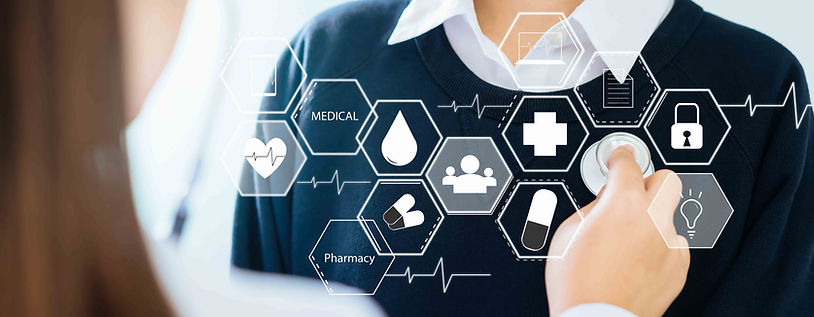
Welcome to Jorie, where the worlds of FinTech and HealthTech seamlessly converge to supercharge your financial processes.
Artificial Intelligence is changing the scope of healthcare now and will continue to do so in the future. Some even argue that it artificial intelligence is already making a difference. Learn more about the ways artificial intelligence is affecting healthcare now, as well as how it might continue to evolve in the future.

Transforming Healthcare To A More Cohesive System
In the past, sharing healthcare records between primary care doctors, hospitals, physical therapists, and specialists has been a challenge. Today, you can get consistent care from multiple locations by working with healthcare professionals who are all using the same electronic record system.
Artificial Intelligence will be used by patients to be treated by a number of different healthcare professionals who are located in different locations. These professionals can communicate with each other immediately using real-time data, and the same technology will help patients who are away from home locate appropriate care.
In addition to streamlining care between facilities, this increased networking capability can be used to improve the claims and billing processes for insurance companies. New artificial intelligence powered claims processing system for healthcare allows group health providers to get the information they need as quickly and as accurately as possible, which opens up those lines of communications with patients and their families.
Transforming Diagnostics And Predictive Care
Currently, health claims administrators and provider services rely on doctors to relay code or codes after examinations or tests. These codes determine what services the patient pays for. In the future, artificial intelligence may make it possible to avoid this red tape altogether to enable providers to better serve patients.
The World Economic Forum states that "Artificial intelligence and predictive analytics help us to understand more about the different factors in our lives that influence our health." These factors include where we are born, what we eat, where we work, what our local air pollution levels are and whether we have access to safe housing and a stable income. Thanks to artificial intelligence, instead of waiting for information after the fact, doctors may be able to predict serious health conditions and take actions to prevent them.

Redesigning The Patient And Staffing Experience
Over the years, doctors and nurses have been overscheduled and overworked, ultimately leaving patients feeling rushed and receiving substandard care. Fortunately, artificial intelligence may be able to step in, relieve some of the burdens on doctors and nurses, support them in providing better care, and thereby improve patient care. Artificial intelligence can help with scheduling, medical claims, revenue cycle management, review logs from blood pressure monitors or scales at home and provide feedback in the office based on the data from the lab to alert the doctor or nurse of abnormal results so they are addressed quickly.
Artificial intelligence best use case has been used for claims processing. In addition, healthcare providers save money by using artificial intelligence as a reminder to patients to take their medications and attend appointments. For example, healthcare providers can use artificial intelligence to place an Echo Dart near the bedside of patients so it can easily achieve the same thing in an independent manner. Patients may prefer this type of interaction over having a nurse do it because it feels less disruptive or more covered under insurance cost.
Artificial intelligence is quickly emerging in the healthcare industry and will continue to do so for the foreseeable future. The next five to 10 years will be extremely vital to the growth of artificial intelligence in the healthcare industry. If Artificial intelligence can truly improve care in the ways we predict and have been shown, healthcare will look very different in the next few years.